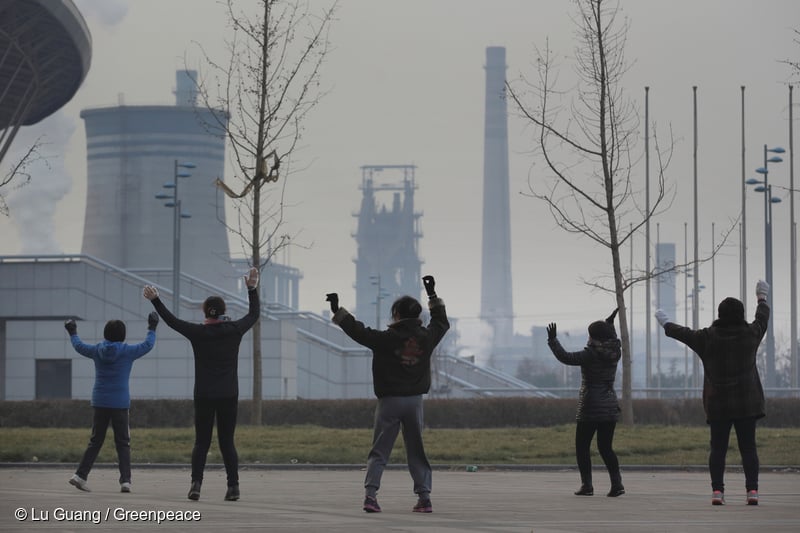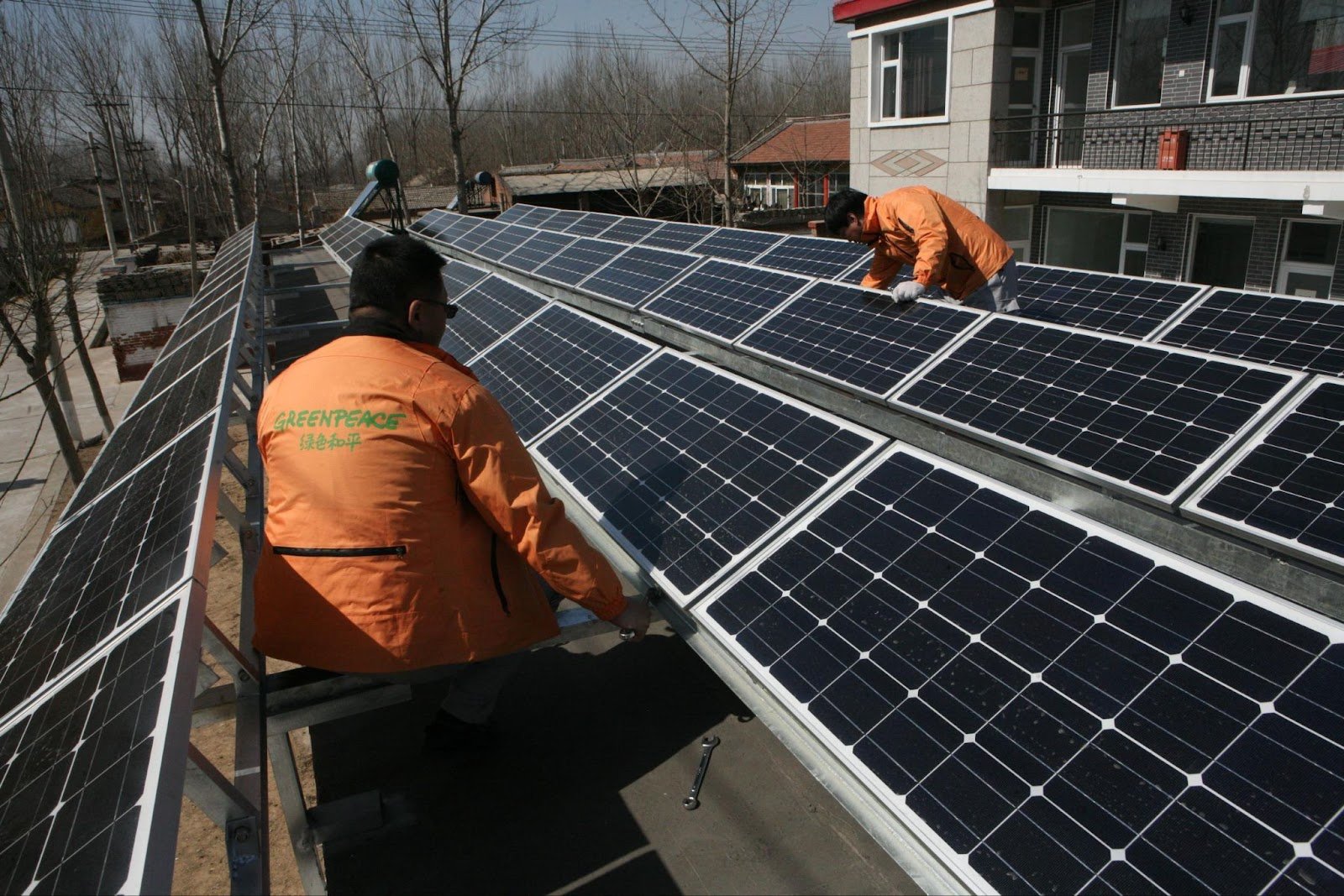TAIPEI – At 9 am today, Greenpeace East Asia held three simultaneous non-violent direct actions at the campaign headquarters of presidential candidates Lai Ching-Te, Ko Wen-Je, and Hou You-Yi. The activists placed large billboards in front of the entrances to the buildings and called on the candidates to target over 40% renewable energy by 2030.
Greenpeace East Asia Climate and Energy Campaigner Lena Chang said:
“Renewable energy targets are key to ensuring the future stability of Taiwan’s economy. At present, all three candidates have released incredibly weak 2030 renewable energy targets, which are insufficient to address Taiwan’s renewable energy shortage. The weak targets undermine Taiwan’s economic competitiveness and threaten its position in the global supply chain.”
“A lack of renewable energy could mean that Taiwanese companies lose business to clients like Apple, which has committed to achieve 100% renewable energy across its supply chain by 2030. If Taiwan’s renewable energy supply continues to lag behind, businesses will face disastrous consequences.”
The action aims to expose misleading statements in the candidates’ campaign slogans. More than 30 Greenpeace activists set up giant campaign billboards, measuring approximately 3 meters in height and 2 meters in width, at the entrances of the three headquarters. Activists replaced the candidates’ campaign slogans with phrases that reflected the grim reality of the renewable energy shortage facing Taiwan. The activists painted the backgrounds of the billboards black, symbolizing a bleak economic future for Taiwan if renewable energy resources are not increased.
The 2030 renewable energy targets proposed by the three candidates range between 27% to 30%, a level that is insufficient to meet Taiwan’s industrial needs. The EU, the US, and India have already set 2030 renewable energy targets that exceed 40%.
Greenpeace East Asia has repeatedly called on the candidates to increase the ambition of their 2030 renewable energy targets. As of Wednesday morning, none of the three candidates had responded to Greenpeace. The Ministry of Economic Affairs estimates that Taiwan’s corporate demand for renewable energy will grow to 31.8 billion kilowatt-hours by 2030, or 33 times the amount purchased in the market in 2022.
“Renewable energy demand in Taiwan is forecast to increase 33-fold by 2030, but based on candidates’ existing targets, supply will grow by only 3-fold, a massive gap. If candidates do not strengthen their 2030 targets, it’s akin to asking businesses to fend for themselves,” said Chang.
Note: The Ministry of Economic Affairs estimates corporate demand for renewable energy will increase to 31.8 billion kilowatt-hours by 2030. In 2022, businesses purchased 962 million kilowatt-hours of green energy certificates in the market.
Note: According to the Ministry of Economic Affairs and Taiwan Power Company, the winning bid for the second batch of small-scale green energy in November 2023 reached 6 TWD per kilowatt-hour, approximately 70% higher than the average industrial electricity price of 3.38 TWD.
Ends
For more information please see the file below
Contacts
Ko Wen-Je’s Headquarters
Greenpeace Climate and Energy Project Manager Yung-Jen Chen
Greenpeace Communications Officer Hower [email protected] 0928228851
Lai Ching-Te’s Headquarters
Greenpeace Climate and Energy Campaigner Lena Chang
Greenpeace Communications Officer Jimmy Chen [email protected] 0988035817
Hou You-Yi’s Headquarters
Greenpeace Climate and Energy Campaigner Chris Hsu
Greenpeace Communications Officer Joy Chiang [email protected] 0987896179



